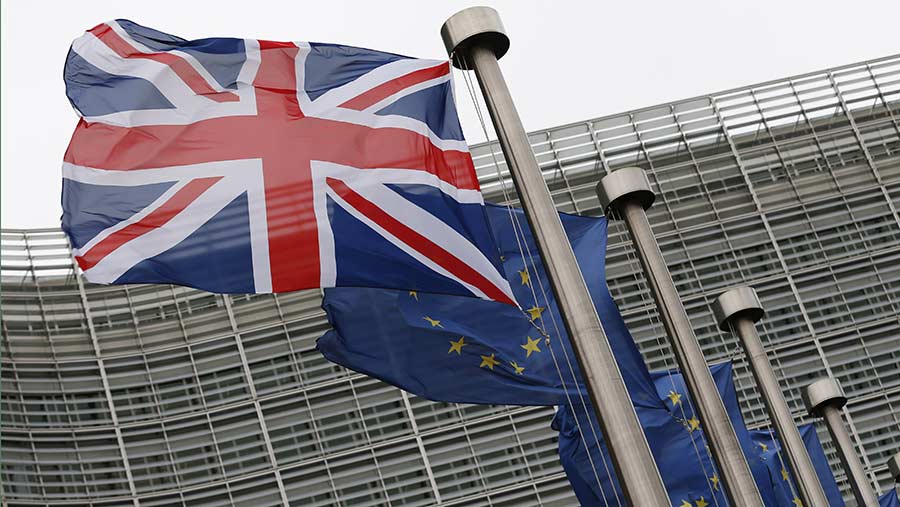Brexit campaign must make case for farming, says Eustice
 © Xinhua News Agency/Rex/Shutterstock
© Xinhua News Agency/Rex/Shutterstock Defra minister George Eustice has defended the lack of a government plan for farming should the UK leave the European Union.
Mr Eustice outlined the government’s position regarding the forthcoming in-out referendum to farmers and reporters at the Norfolk Farming Conference on Thursday (11 February).
“The onus will be on the leave campaign to paint the picture of what it would look like for agriculture in the event that the UK decides to leave the EU,” he said.
The government could yet decide to campaign in favour of leaving the EU, but that would depend on the outcome of talks to renegotiate the UK’s relationship with Europe.
It comes as prime minister David Cameron tries to strike a deal on a UK renegotiation package with other European leaders at a council of ministers meeting on 18-19 February.
A successful outcome, with the government campaigning in favour of remaining in the EU subject to new terms and conditions, could pave the way for a referendum as soon as June.
See also: No plan for farming if UK quits EU, admits Truss
Farmers have repeatedly complained that they can’t make an informed decision on which way to vote unless the government outlines its likely policies in the event of an exit from the EU.
There is particular concern over how a UK government outside the EU would support agriculture, and whether it would do so to the same extent as Brussels.
Mr Eustice said: “Both campaigns – those who want to leave and those who want to remain – will be able to set out their stall, and argue the pros and cons of leaving and remaining.
He added: “If the government decides to argue to stay in the European Union, the government will obviously point out the risks of leaving the European Union.
“But the onus will be on those on the leave side to paint the picture about leaving the EU.”
Earlier, Mr Eustice told reporters the campaign would start once the prime minister had announced the date of the referendum.
It would be up to the leave campaign to explain what coming out of the EU might look like in terms of the impact for agriculture, he said.
There would be “lots of scrutiny on both sides of the campaign; lots of scrutiny of claims made by those saying we need to stay in and those saying we need to come out,” added Mr Eustice.
“One thing I am confident about is that at the end of the debate everyone will be sick and tired of hearing about the European Union,” he added.
“I hope people will feel they have all the information they need to make a decision.”
